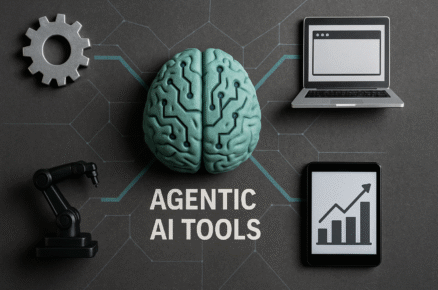Quantum computing is no longer a far-off concept reserved for labs and specialists. In 2025, it is steadily moving into mainstream discussions, with governments, universities, and technology companies investing heavily in research and training. If you are curious about quantum computing learning and want to know how to begin your journey, this guide will walk you through the essentials. Whether you are a student, a professional considering a career change, or simply a tech enthusiast, understanding how to take the first steps is vital. The world is preparing for a future where quantum knowledge will be as important as digital skills were in the early 2000s.
Why Quantum Computing Matters Today
Quantum computing has the potential to solve problems that classical computers cannot handle efficiently. From drug discovery and medical simulations to climate modelling and supply chain optimisation, its applications are vast. In the UK, both academia and industry are pushing forward. Initiatives supported by UK Research and Innovation and partnerships with leading universities are ensuring that educational pathways are available. For learners in 2025, there has never been a better time to start. By developing an understanding of quantum computing, you position yourself at the edge of a technology that could transform the global economy.
The Basics of Quantum Computing Learning
Before diving into coding or advanced mathematics, it is important to grasp the core principles. Quantum computers use qubits instead of bits. Unlike classical bits which can be either zero or one, qubits can exist in superposition, holding multiple states simultaneously. They can also be entangled, meaning the state of one qubit can influence another even across distances. For beginners, do not feel overwhelmed. You can start by learning about the differences between classical and quantum computing without needing a PhD in physics. Think of it as learning a new language, where the first step is to understand the alphabet.
Setting Goals for Your Learning Journey
When approaching quantum computing learning, it is useful to define what you hope to achieve. Do you want to become a researcher pushing forward the theory, or a developer building practical quantum applications? Are you studying for career advancement, or out of curiosity? Defining your goals helps you select the most suitable educational resources and prevents frustration. Some learners thrive in structured university programmes, while others prefer online tutorials and interactive coding platforms.
Quantum Computing Educational Resources 2025
In 2025, learners have access to more structured materials than ever before. Universities, technology companies, and independent organisations provide excellent resources tailored to different levels.
Online Platforms
Major providers such as IBM Quantum, Microsoft Azure Quantum, and Google Quantum AI offer free and paid tutorials. These platforms provide simulated environments where you can experiment without needing access to an actual quantum computer.
University Courses
Several UK universities, including Oxford, Cambridge, and Imperial College London, provide online and in-person modules in quantum computing. These courses often include certificates that can strengthen your CV.
Interactive Learning Resources
Coding platforms such as Qiskit and Cirq allow hands-on practice. Many of them now include beginner-friendly notebooks and documentation, making them more accessible in 2025 than in previous years.
Reading and Research
Books and open-access journals provide background knowledge. Titles that introduce concepts without heavy mathematics are ideal for those starting from scratch. By exploring these quantum computing educational resources 2025, you can create a personalised learning pathway.
Building the Right Foundation
To succeed in quantum computing learning, certain skills will help. Mathematics: Linear algebra and probability form the basis of most quantum concepts. Physics: A general understanding of quantum mechanics is useful but not always essential for entry-level learners. Programming: Python is widely used in quantum computing libraries such as Qiskit. You do not need to master all of these immediately. Start small, build confidence, and expand your skills over time.
Choosing Between Self-Study and Structured Courses
Some learners thrive with self-study, while others need structured guidance.
Self-Study Advantages
Flexibility in choosing resources. Freedom to explore areas of interest. Ability to learn at your own pace.
Structured Course Advantages
Access to expert tutors. A clear progression path. Opportunities for networking and collaboration.
In 2025, hybrid options also exist. Many institutions provide flexible online courses with tutor support, making it easier for UK learners to combine independent study with professional instruction.
Hands-On Practice with Simulators and Real Quantum Devices
One of the most exciting developments in 2025 is the accessibility of quantum simulators and limited access to real quantum devices via the cloud. Platforms such as IBM Quantum Experience let learners design and test algorithms. While simulators run on classical hardware, they accurately replicate quantum behaviour. Paid tiers often allow limited time on actual quantum machines, offering an authentic experience. Practising on these tools is a vital step in moving from theory to practical application.
Building a Community Around Your Learning
Quantum computing learning is easier and more engaging when shared with others. Joining online forums, LinkedIn groups, or local meetups can provide motivation and practical advice. UK organisations such as the National Quantum Computing Centre run events and initiatives to bring together learners and professionals. By networking, you not only learn faster but also discover opportunities for collaboration and employment.
Career Opportunities Emerging in 2025
The UK government and private sector are investing heavily in quantum technologies. This investment is creating career opportunities across multiple industries. Some roles include: Quantum software developer designing algorithms that run on quantum machines. Quantum researcher advancing theoretical and experimental work. Data scientist with quantum expertise combining quantum knowledge with data-driven industries. Educator or trainer helping others develop quantum literacy. By beginning your journey now, you can prepare for roles that may become common in the next decade.
Challenges to Expect Along the Way
Learning quantum computing is not without challenges. Some of the main obstacles include complex concepts that are not always intuitive, limited resources as the field is still evolving, and rapid change where what you learn today may shift as research progresses. The key is to remain adaptable. Focus on core principles, keep up to date with reliable sources, and accept that the field is developing rapidly.
How to Stay Motivated
Long-term learning requires motivation. Here are some tips: Set small, achievable goals. Join study groups for accountability. Celebrate milestones, such as completing a course or running your first quantum program. Follow UK and global news on quantum breakthroughs to stay inspired. Motivation is just as important as technical knowledge in ensuring success.
Future Outlook for Quantum Computing in the UK
By 2025, the UK has positioned itself as a leader in quantum innovation. The government’s National Quantum Strategy is investing hundreds of millions into research and development. Schools and universities are introducing quantum-related modules to prepare the next generation. For learners, this means growing access to courses, research funding, and career pathways. The future is bright for anyone who commits to the journey today.
Your First Step Towards Quantum Computing Learning
Quantum computing learning is a pathway filled with opportunity. While the subject may seem intimidating at first, the range of quantum computing educational resources 2025 ensures that learners in the UK can find an entry point suited to their background and goals. Start small, explore online platforms, consider structured courses, and engage with the community. With consistent effort, you will not only build valuable skills but also position yourself at the forefront of one of the most transformative technologies of our time. The most important step is to begin. Every expert in quantum computing started as a beginner who decided to learn.












Comments are closed.